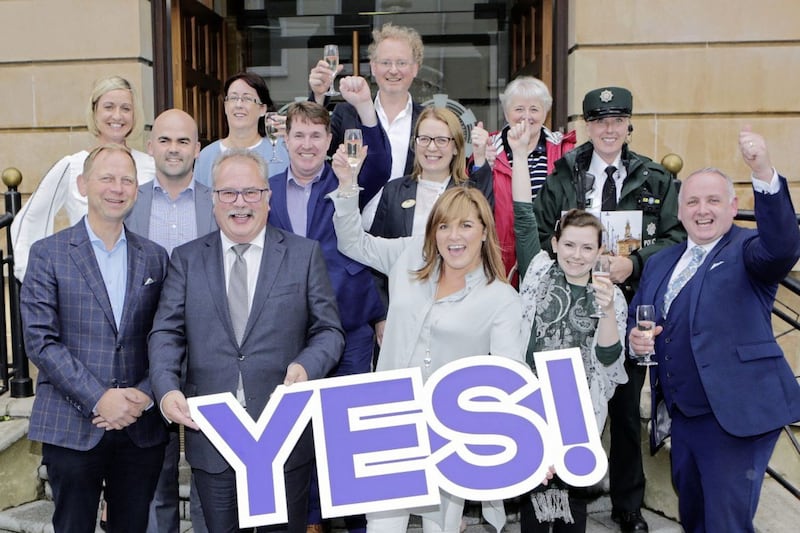Earlier this year, LQ BID sponsored the Belfast Summit featuring renowned urbanist Carlos Moreno, creator of the 15-minute city.
This concept - with proximity at its heart - is embraced globally, and a book telling its story was published just last week. Moreno’s approach is simple. All essential functions including where we shop, socialise, schools, sports facilities, and workplaces should be within a 15-minute walk or cycle from our homes. But it contains more profound ideas that promise a transformation in urban living.
Firstly, the 15-minute city places sustainable development at its core and is informed by in depth-research that seeks to improve transport, energy use, and the circular economy. It also promotes a cohesive city designed for all uses, for example instead of office or retail districts and often sterile neighbourhoods, these sectors are blended for high-quality living.
As a result, housing is transformed with disconnected areas re-imagined as integrated communities. The idea is not to create a single 15-minute city but vibrant 15-minute districts. Paris which has rolled out the concept since 2020 has 50, but how can we imagine this applied to Belfast?
We have a strong neighbourhood focus to our city planning. From Ballyhack to the Gaeltacht, and from Ormeau to the Antrim Road. These areas exhibit 15-minute characteristics with schools, shops, housing, and offices intermixed, and Glider routes in place or planned.
But there are many neighbourhoods and housing estates without supermarkets, let alone access to high quality amenities or places of employment. Under the 15-minute philosophy this approach would change, and planning policy would adopt a holistic approach - supporting place-making and ensuring all districts get the attention they deserve.
But how can this be implemented given retail and hospitality within our city centre is struggling. Well, Moreno and Paris mayor Anne Hidalgo have pioneered a solution which will see the City of Light partner with the Bank of France to purchase commercial units and rent these out at low cost to independent businesses. The opportunities are carefully assigned to ensure every neighbourhood has essentials like a baker, butcher, bookshop, and café.
Could Belfast City Council pioneer a similar arrangement with its pension trustees? Pension funds get secure investments, Councils enhance their commercial rates, and neighbourhoods get new shopping streets, local jobs, and services. Everybody wins.
It’s essential however to note that the concept of a 15-minute city extends beyond mere infrastructure enhancements. Incorporating active and sustainable travel initiatives, such as those seen in the Linen Quarter, enriches the fabric of our urban landscape. This includes the £340 million Grand Central Station, which opens before the end of the year and will drive a wider modal shift.
We’re also actively working with statutory partners to introduce low traffic neighbourhoods where super blocks will ensure improved cycling and walking facilities, and residents can make use of transformed social spaces such as Bankmore Square and The Gasworks, where work is due to begin in 2025.

However, there’s still much to do. The Bolder Vision, which promised a new era of urban living published three years ago, has stalled. The Civic Spine, end of car dominance, city centre living, and renewed waterfront are yet to make the leap from vision to reality.
Fragmented governance needs to end and appropriate powers and budgets should be consolidated in a single agency. We need a revolution in urban transport with pedestrianised streets, cycling highways, and the North-South Glider.
We also need stronger districts within the city centre, connected to more resilient neighbourhoods around it. If we want a people focused future, Belfast should follow the lead of urbanists and build our own 15-minute city.
- Christopher McCracken is managing director of the Linen Quarter Business Improvement District (LQ BID)







